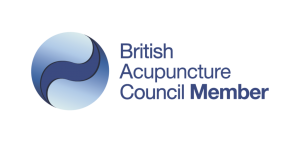 For many years, I’ve been hanging onto my British Acupuncture Council (BAcC) membership by the slimmest of threads. Each time a payment comes out of my account, I think ‘why the fuck am I paying them again?’ and I walk myself mentally along a line of reasoning which ends up on the side of believing passionately in the ideal of being regulated and accountable – even if it is only voluntarily so. And, I stay.
For many years, I’ve been hanging onto my British Acupuncture Council (BAcC) membership by the slimmest of threads. Each time a payment comes out of my account, I think ‘why the fuck am I paying them again?’ and I walk myself mentally along a line of reasoning which ends up on the side of believing passionately in the ideal of being regulated and accountable – even if it is only voluntarily so. And, I stay.
I ran the membership department of Doula UK for many years, and through that and my BAcC experience as a member and volunteer, I learned that membership organisations have a few commonalities between them:
- It’s pretty much always the same people stepping up to volunteer and make change, thus effectively rendering things static.
- Many people who feel disenfranchised don’t take the time to read the communications sent out by the people who run the organisation and blame them instead for poor communication.
- Those who complain the loudest all too rarely step up to be part of a constructive difference.
That said, the BAcC have made some seriously messed up decisions and followed them with some badly thought out actions over the last few years. There’s been poor leadership, poor communication internally and with the membership, stressed out staff, and GB members who walked away from a full tenure of devoted service feeling like they had not been heard and had achieved nothing. Personally, I used to spend a lot of time volunteering for the BAcC. I’ve was on the EC for many years, at committee request I wrote papers about fertility specialisation, at my instigation the Business Development programme was developed and implemented and – just to be clear – I have never taken a penny for this (not even claimed back petrol or parking) because I could afford to do this and because I really, really wanted these efforts to mean something that was just about furthering the profession.
However, over the years I felt more and more undervalued, unrecognised and yes, the same sense of futility that others I’ve spoken to felt about engaging with the BAcC. After five unsuccessful efforts at reaching our previous CEO to talk about some of the issues I felt were pressing around consumer protection and specialisation, I decided to draw a line through direct BAcC engagement and that’s where I’ve stayed ever since.
 Last week, I had the good fortune of being invited with 23 other colleagues to join in the Supervision Conference (I’m on the BAcC register of Mentors and Supervisors) and Jane Debois (Head of Professional Standards) from the BAcC came on her own time to join us and speak on behalf of the BAcC. I cannot tell you what an extraordinary experience it was.
Last week, I had the good fortune of being invited with 23 other colleagues to join in the Supervision Conference (I’m on the BAcC register of Mentors and Supervisors) and Jane Debois (Head of Professional Standards) from the BAcC came on her own time to join us and speak on behalf of the BAcC. I cannot tell you what an extraordinary experience it was.
Here are some things she did:
- Acknowledged the BAcC had messed things up.
- Talked about what was happening behind the scenes so we could compassionately understand what has been going on.
- Apologised on behalf of the BAcC for the unholy mess they’ve made.
- Didn’t try to move us forward whilst ignoring the past.
- Told us of her plans for the immediate future which are sensible, proactive, thoughtful and achievable.
Then, it hit me. I’ve been reading Brene Brown’s book ‘Dare to Lead’ and in it she talks about some of the things that are required in good leadership.
- Accountability
- Willingness to give and receive feedback constructively
- A culture which doesn’t shame
- The compassionate ability to move forward
- Sincere apology
- The ability to work out the internal issues on a management or administrative level in the knowledge that a change in culture will have a trickle-down effect.
And further, it reminded me of the deeply held idea behind the Truth and Reconciliation process:
“The truth and reconciliation process seeks to heal relations between opposing sides by uncovering all pertinent facts, distinguishing truth from lies, and allowing for acknowledgement, appropriate public mourning, forgiveness and healing.”
 And, it made me think – how are the BAcC leadership and staff to help heal us as an organisation without doing this work to heal themselves? They keep trying to make things better by changing things externally, by involving the membership, by trying new strategies (or, as nobody is taking note of the history of the BAcC, doing what always happens when you ignore the past, repeating them not knowing they have been tried already), by changing how they communicate – but never have they comprehensively looked to their own internal structure and leadership and done the healing and coaching work that is necessary to change things from the top down.
And, it made me think – how are the BAcC leadership and staff to help heal us as an organisation without doing this work to heal themselves? They keep trying to make things better by changing things externally, by involving the membership, by trying new strategies (or, as nobody is taking note of the history of the BAcC, doing what always happens when you ignore the past, repeating them not knowing they have been tried already), by changing how they communicate – but never have they comprehensively looked to their own internal structure and leadership and done the healing and coaching work that is necessary to change things from the top down.
I want them to take their money, and invest in a good coach. In a person/people or business designed to analyse the relationships and execution at their workplace and help them work together to heal as a unit, a group, so that what goes out into the membership is different and not coming from the same dysfunctional place.
Jane also shared some stories about the abuse they all too often receive from disgruntled BAcC members, and we as as a group of Supervisors talked about the need for the staff to receive support and supervision in order to support them to do their best work for us. Many people took the time to apologise in turn to her on behalf of our community as that street goes two ways. We also talked about how important we felt Supervision was not only for the profession, but for ourselves. As time has gone on, I think practitioners have better understood the need for CPD, but all too often Supervision isn’t considered CPD and isn’t considered vital for our ability to be better practitioners.
Almost every other caring profession has Supervision as an integral and mandatory part of it’s execution, so why is it that we don’t consider it important?
- Is it cost?
- Is it a lack of understanding of the value this interaction can bring?
- What else do you think it could be?
 I can only speak for myself when I say what a vital role this activity has played in my life. I don’t undertake this specific route all the time – there are long stretches of months when I haven’t had Supervision and instead have had Coaching – and there are years where I’ve had regular group supervision. It depends on what I need. But, there isn’t ever a time where I don’t have someone outside reflecting things to me, sometimes challenging me, pushing me, teaching me and reminding me that no matter how long you’ve been in practice, there’s always something to learn – especially when we mess things up.
I can only speak for myself when I say what a vital role this activity has played in my life. I don’t undertake this specific route all the time – there are long stretches of months when I haven’t had Supervision and instead have had Coaching – and there are years where I’ve had regular group supervision. It depends on what I need. But, there isn’t ever a time where I don’t have someone outside reflecting things to me, sometimes challenging me, pushing me, teaching me and reminding me that no matter how long you’ve been in practice, there’s always something to learn – especially when we mess things up.
I recently had a very difficult issue come up in my own practice (I intend to write about this and the Supervision I had around it in an upcoming BAcC Acu Magazine article) and was able to reach out to a practitioner on the BAcC Supervision Register that I hadn’t seen before, and receive the gift of an hour of time from someone experienced, who helped to restore me to myself so I could go on seeing this client. It had been a while since I had had regular Supervision and it spurred me on to engage in it again.
I leave this blog in the hope that putting some of my thoughts out there will spur on a conversation about how we make lasting and useful change in the BAcC in a way that hasn’t been tried before. And, that someone who might not have considered exploring Supervision as a mainstay in their practice will perhaps email or call and Supervisor and see what they can offer.
Whilst I’m not taking on any more practitioners as supervisees for the next few months, I am always open to chatting to practitioners about what they might get from the experience, and pointing them in the direction of supervisors they might gel well with. So, if there’s anyone out there who could use an extended hand, you are welcome to get in touch with me via email through the contact page of this site.
Tags: acupuncture, Brene Brown, British Acupuncture Council, chinese herbal medicine, doula, Doula UK, fertility, Fertility Support Company, health, low AMH, Mentoring, Naava Carman, recommendations, Supervision, support, TCM, Traditional Chinese Medicine